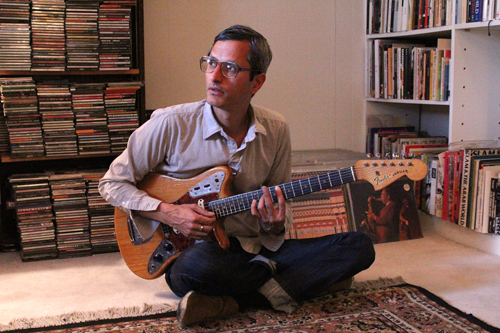Born in Karachi, Pakistan, and raised in New Jersey and Minnesota, Ilyas Ahmed came to Portland on an uncommon path. If Ahmed’s life is anywhere near as interesting as his music is, it’s a story that I’d like to hear.
Ilyas
Born in Karachi, Pakistan, and raised in New Jersey and Minnesota, Ilyas Ahmed came to Portland on an uncommon path. If Ahmed’s life is anywhere near as interesting as his music is, it’s a story that I’d like to hear.

On records like Towards the Night and Between Two Skies, Ahmed has achieved what few artists can aspire to: absolute transfiguration of influence into truly unique expression. While one can hear shades of John Fahey and Keiji Haino within Ahmed’s sparse, acoustic guitar compositions, his music is anything but derivative. This feat is all the more impressive when one considers how singular and unique these influences are.
While Ahmed released one record consisting of nothing more than field recordings of trees, grass and fields, his girlfriend and a dog, most of his albums contain layers of acoustic guitar, with percussion and vocals making occasional appearances. The dreamlike, psychedelic quality of Ahmed’s guitar playing is utterly hypnotic, but it is without the heavy-handed execution that often accompanies this kind of music.
This is not simple music, and yet Ahmed’s powerfully bare, sincere presentation makes it immediately accessible. This is the antithesis of the false earnestness of most so-called singer songwriters, but Ahmed does share some of the same roots with these musicians, as he continues a long tradition of folk-based protest music. Granted, this brand of folk is more informed by traditional Pakistani music than by Dock Boggs.
On albums like Century of Moonlight, Ahmed used long, drawn out, extended structures and constant repetition to express the shallow thinking and monotony of war. On The Vertigo of Dawn, he paid tribute to his heritage with percussive, psychedelic transmutations of the music of his birthplace.
Ilyas Ahmed’s music creates its own language, and in that tongue it seems to express a mythology all its own. He is the rare artist whose fluency is immediately apparent, even to those who don’t understand him.






